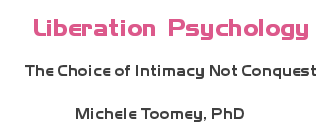|
What a curse, no one or nothing to blame for this devastation. A virus, they say, attacked your brain, penetrated the lining. Called the "unlucky disease" because science has no explanation for why it occurred. Currently back spasms are forcing you to wince with pain. No particular explanation for them, they just occur spontaneously. Sharp, intense pain surges into your side. What's happening? Are you at risk? What can you do? Where is the relief?
Like everything else with this disease, it is a mystery. You'll deal with it, acupuncture, massage, wet heat, calcium and quinine water. It will subside and eventually go away, but when? We have no idea. You are not in charge of anything except how to deal with it. Where to put the anger that your body is no longer a reliable source of mobility and ease. Nothing but nothing is easy. Everything is a project, a struggle. There is no life as usual. There is only life with hard, with enduring, with loss, with pain, with constant reminders of disability and discomfort that crescendos to pain.
Where to put the anger? How to even claim it? Unfortunately, being angry at yourself and your body is an easy mark. It will never give you any relief, however, because it has no integrity. Your body didn't cause this, it fell victim to it and beat all odds to survive it. No wonder you sometimes wish you'd not survived or that you could die. There's even anger at being alive and subjected to all the loss and pain. But that anger, along with the rest, is stifled, hidden or denied. Too scary to admit.
But wait, perhaps too costly to ignore, this undercurrent of anger and pain at what has happened to you and what is still happening. The endless days of enduring struggle and recurring problems flow along the path of hidden feelings. Oops! Mistake! Everything is invisible, memory loss, chaotic energy, static, electricity surges, cramps, pain, discomfort, dry mouth, aching knees...nothing shows. So, how to keep from becoming a prisoner of hiddenness? Words, wonderful, powerful words. Self-expression puts a form and feeling to the invisibility. Anger must be expressed. Pain must be described. Longing and sadness must be felt and given a respectful forum. Dare to find the words and then dare to use them, accompanied by facial expression, tears, grimaces, scowls, whispers, shouts, whines, whimpers, screams, stamping feet, flailing or pounding arms and hands, whatever captures the intensity and reveals the hidden suffering.
Fitting in so many ways, that one of the greatest challenges of this disease is exposure. People, friends, even family, tire of the chronic condition and repetition. They don't want to keep hearing of the cost of brain damage. You look good. You seem normal and healthy. The pressure is there to hide and pretend. Let the illusion pass as truth. Be courageous and suffer in silence. Do not reveal and force people to look at what's underneath the surface. It's too sad. It's too painful. It's too much. It's too personal. Aha! Very revealing. Too personal, they say. It's as if you are naked, they remark. Better to be hidden. Spare us the horror of being faced with your painful loss and unending struggle. Of facing our own vulnerability. Be quiet, be hidden. Stay silent. Spare us.
To that I say, don't you ever succumb to this exile of living death. Don't give in to the norm or to the "need to protect others from the devastatingly painful ordeal of surviving brain injury." If you are alive and living with integrity, then it demands that who you are and how you are experiencing life is yours to voice and ours to hear and see.
Perhaps the back spasms are partly the unspoken stress of having a brother who didn't come to see you for 2 1/2 years since your coma, and when he was invited said he was too busy. Yet, his 50th wedding anniversary prompted him to invite you to attend. Excuse me. Something is very wrong here. Perhaps your back is reacting to that whole unpleasant scene. But you should be quiet, even silent about this? It's no one's business, no one's concern, only yours. Perhaps not. Back spasms started after this encounter. Better give voice to the painful loss. Memory isn't the only thing you lost when herpes simplex encephalitis struck. You also lost the facade of family. Only those who love you enough to dare be close to your suffering and your anger and your pain are left. Strange, but true, by losing the facade you lost some friends and relatives, but in return you lost the capacity to pretend. Now that's a return worth paying for.
So, dear Marlene, be angry at the right things and be sure that it is not at you or your loud, damaged body. Be sad and disappointed over the right things and be proud you don't ever need to be disappointed in yourself. You refuse to pretend any more. You and your struggle are present and true for those who dare come near. You and we are together, intimate and at one. No loss here.
|



